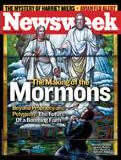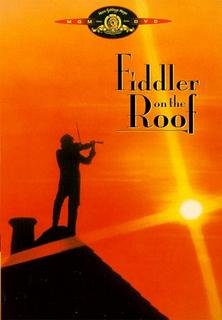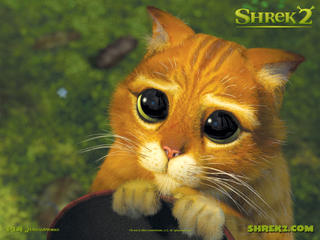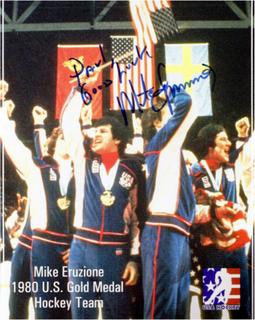WARNING: This post is long. Very long. Read only when you have time, but I'd love comments.

On other blogs around the neighborhood, the adequacy or stupidity of the
newsweek article
The Mormon Odyssey is being debated heavily. It has been asked many times of me what my feelings are on the matter. So, rather than speak in generalizations on the blogs of others, let's now speak of specifics on mine!
I have issues with the article--that is no secret. On an organizational note, I will discuss my problems with it in the order in which they arise in the article. While I always love balanced arguments, I will not discuss in depth the things I liked about the piece. Generally, the positives are obvious: any publicity is good publicity, it gives a synopsis of Joseph Smith's first vision and even mentions that Mormons are nice. Which is cool. I think, as is the case with many
newsweek articles, the negatives are hidden and well-placed so as to do the most damage.
Keep in mind that I'm a communications student specializing in media issues and have worked as a writer at a Portland news station; I don't trust the media in general. Personal experience and all the research I do give me reasons not to trust the media. Whether the countless things that trouble me about the media can be blamed on the profit-first system, readers/viewers/listeners or biased media members individually is a discussion for another time. But keep those things in mind so that I can feel like I've prefaced this post with enough about my own biases to keep me honest. Oh, and I'm obviously a practicing member of the LDS Church. So I'm a little huffy.
So here we go with the Pointing Out (
italics are direct quotes).
1)
The characteristic features of the LDS Church--sacred temple rites, personal revelation, tithing and a history of polygamy--come directly from Smith. To be fair, the next sentence does talk about families and other wonderful things about the Church. But calling polygamy a characteristic feature of the
LDS Church isn't just disrespectful, it's false. As a University of Utah professor (not a member of the Church) was quoted in the Daily Universe yesterday as saying "You wouldn't confuse the Roman Catholic Church with the way it was during the Inquisition, but people do that with the
LDS church--cover it like something it's not." Polygamy
is not a characteristic feature of the
LDS Church. It
was, a long time ago. Aside from me bristling whenever polygamy has to be mentioned when talking about the Church, this is a false statement--in a news source. That's bad.
2)
After Smith ordered an antagonistic printing press destroyed, he was jailed. This statement is completely factual, every part of it. But this is where reporters have to be careful in accurately representing the truth. In the article so far it has only been mentioned that Saints were "driven" from community to community, and that this printing press was "antagonistic." So to mention that Joseph Smith had the press destroyed after characterizing the mobs and
antagonizers as only a bit irritating is a misrepresentation. These men were, at best, printing lies and, at worst, inciting murder, torture, arson and rape with the lies they printed. It's not difficult to
do research and find out more history. I have seen some of the articles. I have no doubt that the reporter and editors knew that Missourians were doing more than just "antagonizing" and "driving" members. Whether this was a deliberate oversight or not would be interesting to know--I like to give people the benefit of the doubt, personally. But in leaving out key points that would change the representation of a man's character completely, those responsible were showing poor ethics, or at least poor researching techniques.
3)
Central tenets of Mormonism seem confusing--even literally incredible--to those outside the faith. An angel named Moroni? "Plural" marriage? See #1. Are you kidding me? Plural marriage as a central tenet? If you are
LDS and this doesn't irritate you, then, well... you are more Christlike than me. And I'm impressed. Bottom line: it's False. In a news source.
4)
The church's early converts, many of whom learned about it from missionaries, were sometimes shocked when they met Smith in person. He was uneducated, he lost his temper, he enjoyed power.... Let's see, where to start? How about not including the fact that many of the "church's early converts" "were sometimes shocked when they met Smith in person" for completely opposite reasons--many claimed that just by looking at him they couldn't deny that he was a prophet of God. Often enemies intent on harming him even walked away at the sight of him, not being able to deny the power that he had over their hearts. Again, not giving both sides of the story is misrepresentation, although factual. Perhaps even worse about this passage is "he enjoyed power." How would the reporter know this? This is poorly stated. Joseph Smith hated power. His journals say it. He sought political power for reasons other than a desire to have it. Do your research. Remember, this is a news source.
5) To conclude the paragraph (mentioned in #4) explaining many things that early converts didn't like about Joseph Smith (and also interviewing a member of the Community of Christ), the reporter decided to include:
By the end of his life, he had accrued some 30 wives, massive debt and hundreds of enemies. "I never told you I was perfect," he told his followers. "But there is no error in the revelations which I have taught." Again, though not necessarily false, the ordering of these sentences does more damage than falsity could. This is a powerful statement by Joseph Smith, but to place it here makes it sound like he's apologizing for making enemies and practicing polygamy. He never apologized for these things. He never said "In spite of my mistakes in practicing polygamy, my message is true." He practiced polygamy because he believed that God had commanded him to. According to him, it wasn't because he was giving in to his base desires to have sex with lots of women (as was and continues to be claimed by countless critics). He never apologized for it. This sounds like he is. Misrepresentation through the ordering of specific sentences. In a news source. Brilliant.
6)
"Decades of serious and honest scholarship have failed to uncover credible evidence that these Book of Mormon civilizations ever existed," he wrote. This is a quote by a historian that scientifically has proven that Native
Americans are descendants of Asians. As we all know, you can use science to prove just about anything, and our society usually does. I have no doubt that many Native
Americans are descendants of Asians. Asia is a big continent. That could mean anything. The fact that the reporter doesn't include that many historians have found the exact opposite as this guy, again, is a misrepresentation of the facts. Much credible evidence, despite what this man says, has been found and continues to be found. Read almost anything by Hugh
Nibley on the subject of the ancient peoples of the Americas, and you will doubtless find his research completely credible. Do the research behind the things that he says if you don't want to take his word for it. You will be surprised what you find. To include this in the report with no rebuttal is, again, poor ethics.
7)
While LDS scholars, of course, reject that conclusion, some are re-examining common theories about the Book of Mormon's geography, suggesting that it takes place near an isthmus in southern Mexico instead of across the Western Hemisphere, as many readers previously assumed. This was included immediately following #6. Again, the placement of this sentence gives the impression that "
LDS scholars" "are re-examining" their theories because of science like this historian presented. In fact, it gives the impression that they're re-examining their theories exactly because of this historian's science. While this may be factual, that some
LDS scholars are scrambling to prove stuff because this guy said something, I doubt that many are. There is just as much historical evidence to disprove this historian as there is to support him.
LDS scholars know this, and most probably agree with him in his assessment of Asian decent among Native Americans, but disagree with his assessment of Book of Mormon historical sites.
8)
The church is likely always to be more comfortable with orthodoxy than with inquiry, and this year's celebrations won't bring the unsolicited airing of dirty laundry (a church-sponsored art exhibit about Smith made no mention of his polygamy, for example). Is it physically impossible to mention Joseph Smith's name without mentioning polygamy? Fo r reporters it appears to be, but the Church is actually having the gall to try. To hold an exhibit about Joseph Smith without mentioning polygamy? The nerve! Can you believe that?!? That would be like holding an exhibit on President Clinton and not mentioning that he lived in Arkansas! In the whole scheme of the life of Joseph Smith, polygamy was not a defining characteristic. Even worse about this statement is calling polygamy "dirty laundry" (see #5). Members of the
LDS Church should not be ashamed of this. It's a fact, we believe that God commanded it, and therefore it was correct. It was not a mistake. It was not dirty laundry. It was a commandment, and Joseph Smith followed it against his own will. Read his journals. Read the journals of those who knew him. The Church does not, and its members should not consider polygamy "dirty laundry." This is an opinion included in a straight news article. Poor ethics.
So as not to have a whole new item devoted to the same problem, I will just mention here that later in the paragraph it is mentioned that an
LDS historian and professor is publishing a book and giving a series of lectures about Joseph Smith. Some
LDS leaders apparently attended the lectures. The report said,
"I ran the risk of making them bridle at me," he says. "But they liked the talks. And that leads me to believe that we don't have to bury our stuff anymore. We're able to deal with the problems and accept them." That's great. I'm sure his lectures were good. But to place this at the end of the paragraph it's in makes it sound like he's calling polygamy a problem again. If he is, I believe he's mistaken. But he doesn't say that here, and it makes more sense to me that the reporter is putting it here assuming that he's calling polygamy a problem. It wasn't a problem the way in which it is presented here.
9)
Though the LDS Church stands by polygamy as a divine--albeit revoked--revelation.... Again, factual. But one cannot deny that the placement and wording of the phrase "albeit revoked" appears sarcastic. It was a d
ivine revelation. It was revoked. That is true. But the writing seems sarcastic, as if to discredit the belief and say "if it's so divine, why was it revoked." Though you may not have interpreted it that way, it is easily interpreted it as such. Many people, no doubt, have. It is the responsibility of the reporter to remain neutral.
10)
In Utah after Smith's death, polygamy was practiced openly: at its height, at least 25 percent of adults in some communities were members of polygamous households. Totally factual, as far as I know. It would be more ethical, because your article is about the Mormon Church and not small Utah communities, to also include the fact that the % of overall church members that practiced polygamy was much smaller. Not a big deal, just an issue.
11)
However, LDS doctrine holds that some polygamist marriages will exist in the celestial kingdom, the highest tier of heaven. False. The President of the
LDS Church is the only one authorized to set forth church doctrine, as church doctrine states. A President of the Church has not taught that. Therefore, this is not
LDS doctrine, as far as I know. If anyone knows of a
President of the Church saying this in a reputable source, let me know. Members of the Quorum of the Twelve Apostles do not set forth doctrine for the Church. Never have, regardless of book titles or the way in which they speak. Only the President can do so and ever has.
12)
"I am devastated when people say I am not a Christian, particularly when generally that means I am not a fourth-century Christian," says Elder Jeffrey R. Holland, a member of the Quorum of the Twelve Apostles. This just deserves specific praise. For the reporter to include this in a paragraph that also has quotes about Mormons not being Christian is good reporting. It's balanced. It shows both sides of this story. And it's a reputable source. Kudos for including this.
13)
Yet something made people leave their homes to follow him, to endure persecution and risk death. This is not a big deal, and you will probably think me ridiculous for taking issue with this--you're probably right. But given the other misrepresentations in the article, I am now inclined to become
nitpicky. People didn't just risk death for the prophet Joseph and the Church he founded, they actually died. Thousands were murdered and raped. They weren't just risking anything--they were victims.
14)
But his most meaningful contribution was as "prophet, revelator and seer," as he called himself.... This is the final blow for
newsweek.
The epitome of why
newsweek cannot be considered a news source. Again, same issues, so I will try to keep it succinct. It's factual, he did call himself that--by establishing that he was a prophet and that a prophet is a seer and a
revelator also. But this paints him as an egomaniac. It would have been more representative to say "as his followers call him," or "as his followers believe him to be," or "as
LDS doctrine states." Whether he was an egomaniac or not is not a proven fact. He could have been, according to the world. He may not have been. This is an opinion. In my view, it's a bad one. This is a misrepresentation of a man's character, painting him as something he might not have been. Reporters cannot base things on "might."
The reporter is a former
BYU student. I do not know if she is a member of the
LDS Church. Although I am grateful for her having pitched the idea to her editors and for all of the publicity the Church is getting because of this report, having gone to
BYU, she should have known better on many of these issues.
So here's the conclusion: the media are biased. Perhaps more importantly, so are you. So am I. Why is it such a surprise and a salient issue that reporters are biased? Everyone has biases, and everyone makes decisions based on those biases. Where I have problems are where media members claim that they put their biases aside because of their job to "shine light on dark corners of society." I do not doubt that they try, and that they succeed a lot of the time. But nobody can keep biases out of their decision making all the time. It is folly to think that we can. The problem with the media in general is that most of them have the same biases, so they come to believe that all of America has these same biases. This explains why the media is always so amazed when conservative people and issues get voted for. They don't see how it's possible, because everyone with whom they associate didn't vote in that way. It's groupthink, and it's dangerous. I'd rather give people the benefit of the doubt and say that they say and do things because they sincerely believe that the society in which they live feels the same way than to believe that they have biases and they are intentionally trying to influence people through the guise of truth. I don't believe the latter. I believe in the sincerity of people, even those in the news business. They are just misguided.
 One night, when I was around 14 years old, my family and I were all gathered around the television watching Jeopardy. Despite the fact that most members of my family enjoy watching Jeopardy (we like to feel smart), this was not a nightly ritual, or even a usual occurrence. It just happened this night.
One night, when I was around 14 years old, my family and I were all gathered around the television watching Jeopardy. Despite the fact that most members of my family enjoy watching Jeopardy (we like to feel smart), this was not a nightly ritual, or even a usual occurrence. It just happened this night. Wednesday was a big day for Jella. Her first shots. She did extremely well with the first one--just flinched for a second, and then kept smiling. But as soon as the second one hit, she turned bright red and just stopped screaming last night at about 3 a.m. That's right, about 36 hours of screaming with a couple of 10 minute breaks in there. Unfortunately, that also meant that sweet JellaMama was also tearful for the last 36 hours as well. She took more breaks between crying spells, though. Apparently the Pain Cry is harder on moms. Needless to say, we haven't slept much lately. That on top of a few take-home essay tests, some Testing Center tests, and a couple of papers to write, it's been a crazy week. The only difference I can see between this past week and the coming week is that Jella won't be getting any shots. So we might be able to sleep, which will be nice.
Wednesday was a big day for Jella. Her first shots. She did extremely well with the first one--just flinched for a second, and then kept smiling. But as soon as the second one hit, she turned bright red and just stopped screaming last night at about 3 a.m. That's right, about 36 hours of screaming with a couple of 10 minute breaks in there. Unfortunately, that also meant that sweet JellaMama was also tearful for the last 36 hours as well. She took more breaks between crying spells, though. Apparently the Pain Cry is harder on moms. Needless to say, we haven't slept much lately. That on top of a few take-home essay tests, some Testing Center tests, and a couple of papers to write, it's been a crazy week. The only difference I can see between this past week and the coming week is that Jella won't be getting any shots. So we might be able to sleep, which will be nice.


 4) Tevye dancing to "If I were a rich man" is one of the best things that have ever been invented in this life. It's right up there with dark chocolate and babies. While we're on the subject, Gwen Stefani should be given three life sentences for what she's done to that song. In Shawshank. Being forced to wear an
4) Tevye dancing to "If I were a rich man" is one of the best things that have ever been invented in this life. It's right up there with dark chocolate and babies. While we're on the subject, Gwen Stefani should be given three life sentences for what she's done to that song. In Shawshank. Being forced to wear an  6) Shrek 2 is much funnier than Shrek. This weekend I was reminded that as good as the first was, the second is much funnier. Anyone who says otherwise is wrong. Unless you are one who visits my blog, in which case it all cancels out and you are a wonderful person.
6) Shrek 2 is much funnier than Shrek. This weekend I was reminded that as good as the first was, the second is much funnier. Anyone who says otherwise is wrong. Unless you are one who visits my blog, in which case it all cancels out and you are a wonderful person. 2) Miracle (the true story makes the movie amazing)
2) Miracle (the true story makes the movie amazing)



 Went to Priesthood Session at the Marriott Center that evening, and find it funny how few men can take up so many seats in that stadium. If it were a Relief Society broadcast, all the seats in one section would be taken up before moving to another one. For the Priesthood Session, all sections were populated, and most men took up more than one seat. Good stuff. Afterwards, Jella, JM and I had my parents' gift card treat us to late never-ending pasta bowls at Olive Garden. We were there, and we were family. So I guess they're right. Nothing interesting to say about that, just another detail to show that this weekend was the best. Ever. To top the day off, Jella slept for 7 hours that night. Pure bliss.
Went to Priesthood Session at the Marriott Center that evening, and find it funny how few men can take up so many seats in that stadium. If it were a Relief Society broadcast, all the seats in one section would be taken up before moving to another one. For the Priesthood Session, all sections were populated, and most men took up more than one seat. Good stuff. Afterwards, Jella, JM and I had my parents' gift card treat us to late never-ending pasta bowls at Olive Garden. We were there, and we were family. So I guess they're right. Nothing interesting to say about that, just another detail to show that this weekend was the best. Ever. To top the day off, Jella slept for 7 hours that night. Pure bliss. The Giant came over again today to do his laundry. I heard that he went inside the dryer to look for a sock and found a half-goat thing named Tumnus. That must have been cool.
The Giant came over again today to do his laundry. I heard that he went inside the dryer to look for a sock and found a half-goat thing named Tumnus. That must have been cool.